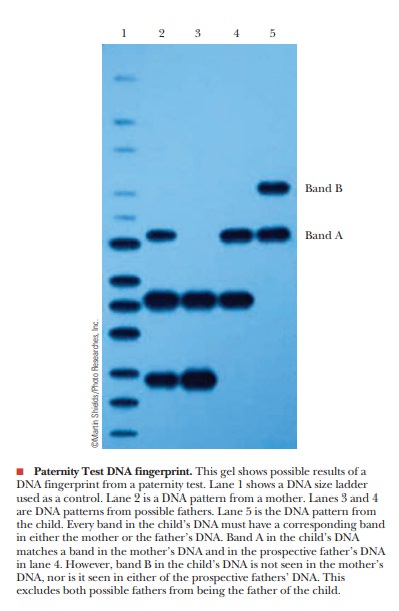Chapter: Biochemistry: Nucleic Acid Biotechnology
CSI: Biochemistry - Forensic Uses of DNA Testing
CSI:
Biochemistry - Forensic Uses of DNA Testing
It has been suggested that tissue samples be taken from all
convicted felons to allow for identification of their presence at future crime
sites by DNA fingerprinting. This may seem very desirable, but some ethical and
constitutional questions must first be answered. Nevertheless, DNA testing has
been used to determine whether people currently in custody might have been
involved in unsolved crimes. One crime frequently examined in this way is rape,
because body fluids are usually left behind. Many unsolved crimes are being
solved, and some convicted prisoners are being found innocent. In at least one
bizarre case, a felon was found innocent of the crime for which he was in jail,
only to be rearrested in a few weeks because his DNA matched samples found on
rape victims in three other cases.

The power of DNA testing cannot be overemphasized. In the trial of
O. J. Simpson, the identity of the DNA was never questioned, although the
defense successfully raised questions as to whether the evidence had been
planted. In most cases, DNA evidence results in the release of innocent
suspects in a crime. When the DNA matches, however, the rate of plea bargaining
goes up, and the crimes are solved without long and expensive court trials.
Establishing paternity is a natural application for DNA testing.
The DNA markers found in a child must arise from either the mother or the
father. A man who is suspected of being the father of a particular child is
immediately excluded from consideration if that child’s DNA contains markers
that are not found in the DNA of the mother or the suspect father. It is more
difficult to prove conclusively that a person is the father of a particular
child because it is usually too expensive to test enough markers to pro-vide
conclusive proof. However, in cases in which there are only two or three
candidate fathers, it is usually possible to determine the correct one.
Related Topics